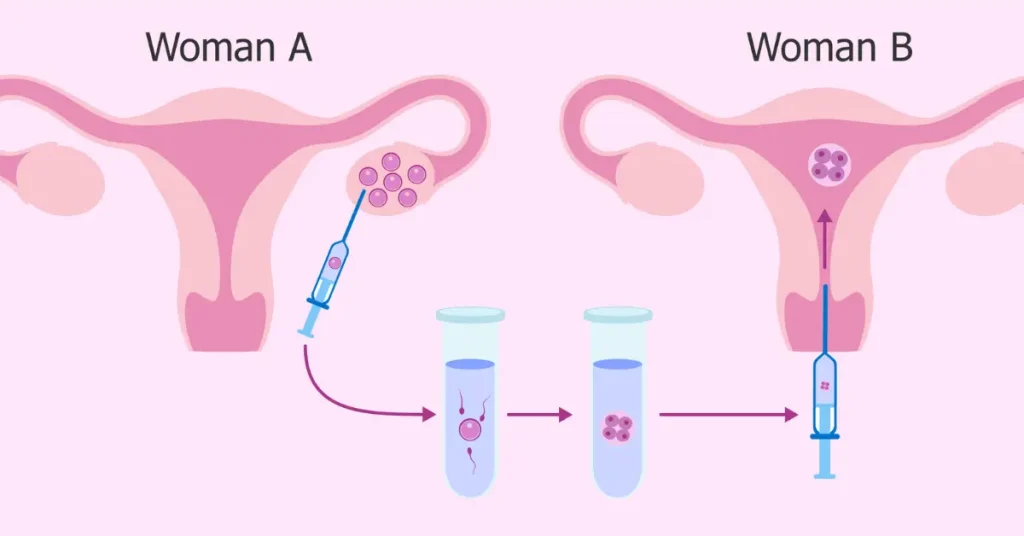The legal complications during a certain surrogacy program can easily make or break the desires of any intended parents. So, as you go through your first steps in the same direction, it is always recommended to take a detailed understanding of the given legalities on your way. There is no denying that for many intended parents who are having difficulty beginning or growing their families, surrogacy provides a glimmer of hope.
But in Ireland, surrogacy presents a difficult legal, moral, and practical roadblock on the path to parenthood. That said, more reforms in Ireland surrogacy are necessary if it is to become a more surrogacy-friendly country. Let’s examine the proposed changes that might make surrogacy in Ireland a more appealing choice for intended parents.
Recommended reforms in Ireland surrogacy
Creating an Explicit Legal Framework
First and foremost, Ireland must make some crucial changes within their legal framework surrounding surrogacy. This may include:
Keeping the rights of every party protected: Establishing a thorough and lucid legal framework that delineates the entitlements and obligations of all stakeholders in a surrogacy agreement is a fundamental measure. Moreover, the protection of the intended parents, the surrogate, and—above all—the child should be guaranteed by this framework.
Legal Recognition of Intended Parents: To avoid the need for drawn-out adoption procedures, the law ought to automatically recognize intended parents as the child’s legal parents at the time of birth if the child is born via surrogacy.

Strengthening Ethical Supervision
While taking care of the legalities is important, it is also significant to take care of the ethics and morals around it while pursuing your parenthood dreams.
Ethical Procedures for Surrogacy: It is essential to set up an impartial regulatory agency to monitor surrogacy procedures. Moreover, this organization would make sure that all surrogacy contracts adhere to ethical principles, safeguarding both the child’s and the surrogate’s welfare. While setting up an agency would not be sufficient, government agencies can timely audit and validate the functioning of such agencies.
Informed Consent: It’s critical to make sure surrogates are fully aware of the consequences of their consent. To ensure informed consent, comprehensive counselling and psychological support ought to be required. Informed consent is highly important to eliminate the chances of surrogate exploitation and abuse.
Financial and Social Support for Surrogate Compensation: It is important to set clear rules regarding surrogate compensation and the coverage of medical and ancillary costs. This would guarantee surrogates receive just compensation for their service, as well as for any inconvenience or risk they assume. While just compensation for the surrogate is important, it must not mean that surrogacy is simply carried out for commercial reasons only.
Medical and Psychological Support: To protect their health and wellbeing, surrogates should have access to the best medical care possible as well as continuous psychological support during and after the pregnancy and delivery. To make the same happen, medical professionals and surrogacy clinics must take adequate steps via state-of-the-art technology and equipment.
Making it more accessible to everyone
As of now, surrogacy is not available to everyone and this is where most of the intended parents feel deprived of the myriad of benefits that come along with a surrogacy program.
Equal Access: All potential parents, irrespective of their marital status, sexual orientation, or gender identity, should have equal access to surrogacy laws. This inclusiveness guarantees that every single person or couple can use surrogacy to pursue parenthood.
Support for International Surrogacy: International surrogacy is the only practical choice for a large number of Irish families. That said, legal changes, such as expedited procedures for establishing the intended parents’ legal paternity, should make it easier to adopt a child born abroad through surrogacy and bring them to Ireland.

More Steps Towards Education and Public Awareness
You can achieve a lot while making the public aware and informed regarding the benefits and also risks attached to surrogacy. This way, they can make an informed decision without falling into random myths and misconceptions.
Raising Awareness: Dispelling myths and fostering understanding could be achieved through a random public awareness campaign within any country. That said, the ethical treatment of surrogates and the significance of surrogacy as a legal route to parenthood should be the main subjects of education.
On the other side, specialized training for medical professionals, such as doctors, nurses, and counsellors, is necessary to ensure that they provide the best care and guidance to all parties involved in surrogacy.
Financial Support for Parents-to-Be
Let’s accept it- Surrogacy is a financially driven arrangement and one must plan in order to achieve the desired results out of it. Still, the governments can go with the following:
Insurance coverage and subsidies: The cost of surrogacy may be unaffordable for many. Moreover, a wider range of intended parents may find surrogacy more accessible if subsidies or insurance coverage for medical procedures related to surrogacy were introduced.
Improving Postpartum Assistance
Surrogacy doesn’t conclude with the birth of the child and there are several other procedures after that as well. That may include:
Support after child Birth for Families and Surrogates: It is crucial to set up postpartum support systems, such as therapy and health examinations for surrogates and assistance programs for newlyweds adjusting to parenthood. On the other side, parental rights should be streamlined to make it easier for intended parents to obtain birth certificates and parental rights. This will prevent bureaucratic obstacles from taking away from the happiness that comes with bringing a new child into the family.
Taking a futuristic approach
It won’t happen overnight and the government of Ireland needs to take this one step at a time. This is how they can stop the increasing number of people going for surrogacy overseas. Also, putting these reforms in Ireland surrogacy into effect would be a big step toward making it a more surrogacy-friendly nation. In addition to giving intended parents a realistic way to realize their parental goals, it would guarantee the safety and dignity of surrogates, who are vital to this process.
Final words
Ireland is a country that carries all the potential to be the next best destination in the surrogacy fraternity. Yet, it has to cover a lot of distance in order to achieve that status. Still, Ireland can lead the way in ethical surrogacy procedures by embracing these changes and providing encouragement and hope to individuals who aspire to have children. Also, to achieve these reforms in Ireland surrogacy, cooperation, comprehension, and a dedication to fostering a caring and encouraging surrogacy environment are necessary. Ensuring that everyone involved in surrogacy journeys toward parenthood with dignity, respect, and love is the ultimate aim.















